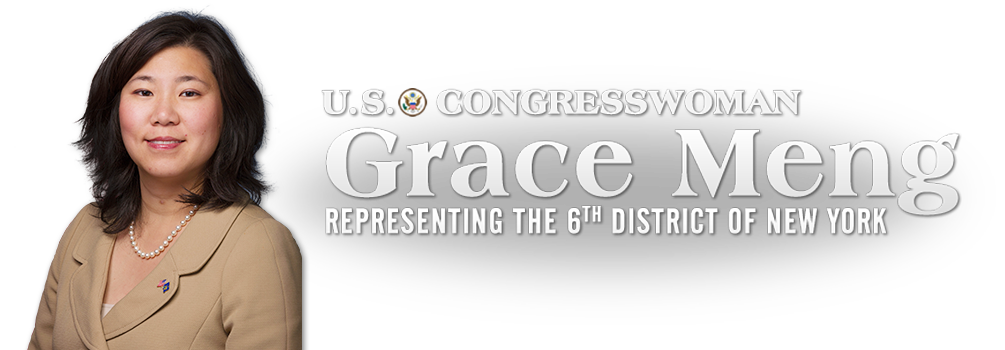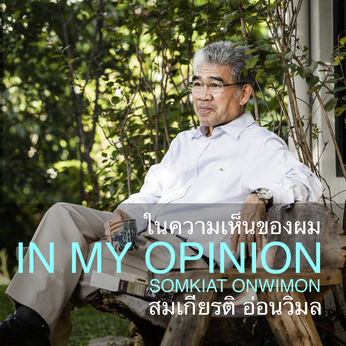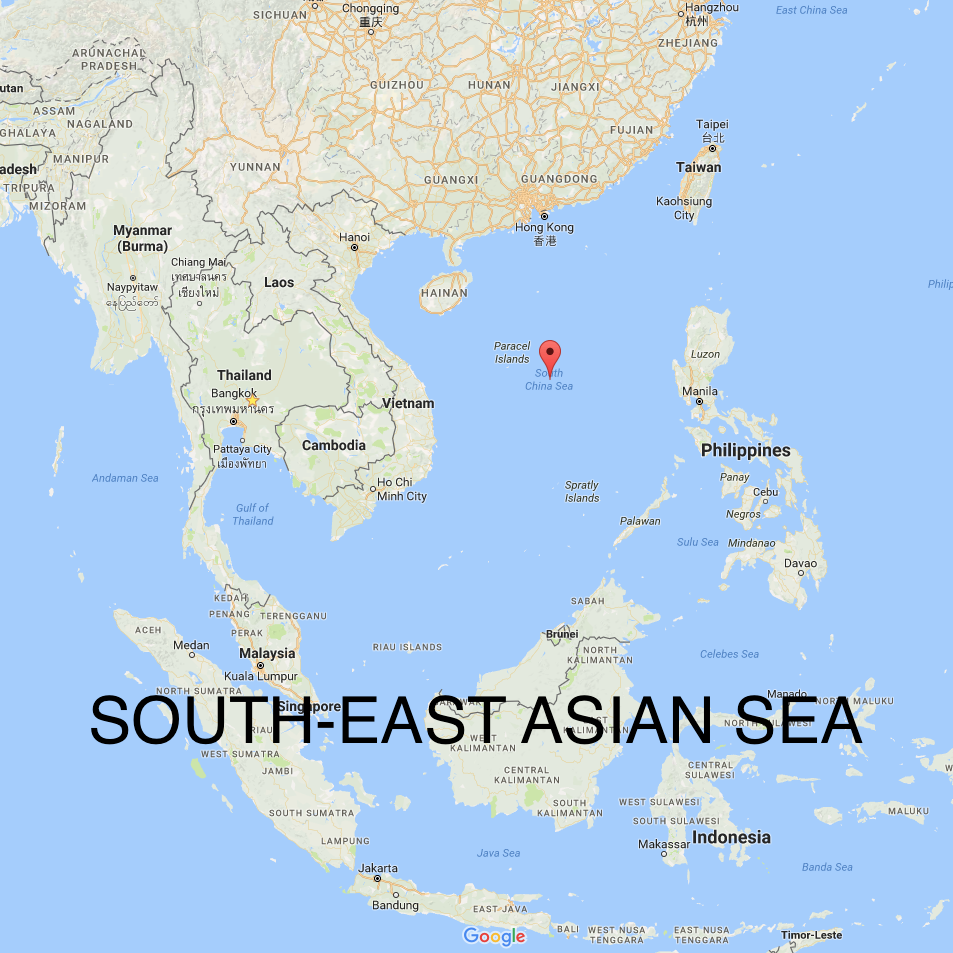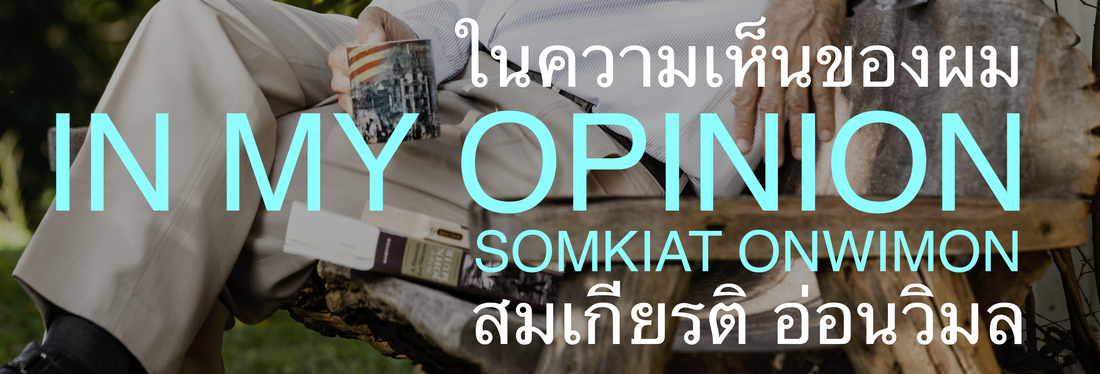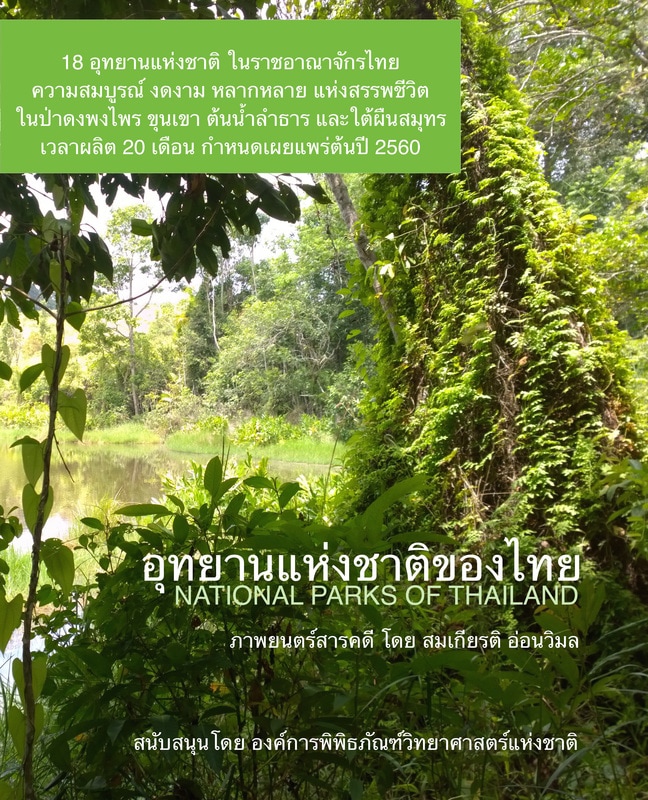|
PowerPost
Follow @powerpost Congress ‘The cleansing’ by ‘the Orientals’: Lawmaker uses offensive term to describe raucous town halls By Kristine Phillips March 4 at 8:00 AM Then-Illinois Rep. Mike Bost argues legislation while on the House floor during a session at the Illinois State Capitol in Springfield in May 2014. (Seth Perlman/AP)In February 2016, Rep. Mike Bost (R-Ill.) voted on a bill to remove the term “Oriental” from federal law, and to replace it with “Asian Americans.” But a year later, he used the derogatory and antiquated term to describe the raucous town halls that have dogged conservative lawmakers. During a meeting with the editorial board of the Southern Illinoisan newspaper, Bost explained why he avoided in-person town hall meetings with constituents and instead hosted a tele-town-hall. “The amount of time that I have at home is minimal, I need to make sure that it’s productive,” Bost, who represents the 12th Congressional District of Illinois, told the paper. “You know the cleansing that the Orientals used to do where you’d put one person out in front and 900 people yell at them? That’s not what we need. We need to have meetings with people that are productive.” The Republican from Murphysboro, Ill., said in a subsequent statement that he “used a poor choice of words,” according to the Associated Press. “While there was no malicious intent, I regret that my words may have distracted from an important point,” Bost said. “When the booing and shouting drowns out the conversation we’re trying to have with our constituents, it becomes that much harder to govern.” “I appreciate the Congressman’s apology,” Rep. Grace Meng (D-N.Y) said Friday. Meng sponsored the 2016 legislation to eliminate all references to “Oriental” in federal law. The bipartisan bill was signed by President Obama during Asian Pacific American Heritage Month. “The term ‘Oriental’ has no place in federal law and at long last this insulting and outdated term will be gone for good,” Meng said at the time. “No longer will any law of the United States refer to Asian Americans in such an offensive way, and I applaud and thank President Obama for signing my bill to get rid of this antiquated term. “Many Americans may not be aware that the word ‘Oriental’ is derogatory. But it is an insulting term that needed to be removed from the books, and I am extremely pleased that my legislation to do that is now the law of the land.” Bost’s spokesman, George O’Connor, told the AP that the Congressman’s use of the word “Orientals” was a reference to a practice during China’s Cultural Revolution when individuals were publicly humiliated and verbally abused by a crowd. Republican members of Congress have been met with confrontational crowds in their home states. Many, citing safety concerns, have refused to hold town hall meetings. In a recent tweet, President Trump dismissed the “so-called angry crowds” as “liberal activists.” -------------------------------------------------------------------------------------------------------------------------------- Donald J. Trump ✔@realDonaldTrumpThe so-called angry crowds in home districts of some Republicans are actually, in numerous cases, planned out by liberal activists. Sad! -------------------------------------------------------------------------------------------------------------------------------- Bost has received criticism for not scheduling public events on his home turf. Facebook and Twitterpages called “Where is Mike Bost?” have been created and have resulted in protests outside Bost’s Illinois offices in Carbondale and Belleville, according to the Southern Illinoisan. Bost told the paper’s editorial board that in-person town halls have gotten out of control, “which means you don’t actually get to talk to people and listen, and we’re looking for ways to do that.” In response, the Southern Illinoisan’s editorial board wrote Wednesday that constituents want to have a conversation with Bost, particularly about the future of the Affordable Care Act. “It’s an important topic for our community, and it means a lot to a lot of people in Southern Illinois,” the paper wrote. “Bost needs to have this conversation in a public setting.” The paper further wrote: Rep. Bost, the people of your district elected you to lead. There are going to be tough times, precisely like this. The people of your district want to have their voices heard, and doing it over the phone or the internet just won’t do. Will it be tough? Yes. Will there be some difficult back-and-forth? Yes, absolutely. Is the best thing to do right now for the constituents of the district? Yes, most definitely. But it has to happen. The people of the district deserve a chance to vent. As a state representative in 2012, Bost created a stir after he screamed at Illinois House Speaker Mike Madigan, a Democrat from Chicago. Bost erupted as House members were about to vote on a contentious bill to overhaul the state’s pension system, the AP reported. Democrats used an old rule to block any debates or changes to the bill. Out of frustration, Bost referenced the Bible and threw a stack of papers in the air as he screamed profanities. “These damn bills that come out here all the damn time come out here at the last second and I’ve got to try to figure out how to vote for my people,” he screamed on the House floor, the AP reported. He told Madigan that he should be ashamed of himself, according to the AP, and later said he felt like an Israelite slave being held in ancient Egypt. “Let my people go!” he yelled. “They sent me here to vote for them … but I’m trapped. I’m trapped by rules that have been forced down our throats.” Bost was first elected to represent the 12th Congressional District of Illinois in November 2014. He won reelection last year. Reference: The Washington Post Meng Bill to Remove the Term "Oriental" from U.S. Law
Signed by President Obama May 20, 2016 Press Release Legislation sponsored by U.S. Rep. Grace Meng (D-Queens) that removes the derogatory and antiquated term “Oriental” from federal law was this afternoon signed into law by President Obama. The bipartisan bill, which the President signed during Asian Pacific American Heritage Month, will eliminate all references to “Oriental” – which still appear in Title 42 of the U.S. Code – and replace the word with “Asian Americans.” “The term ‘Oriental’ has no place in federal law and at long last this insulting and outdated term will be gone for good,” said Meng. “No longer will any law of the United States refer to Asian Americans in such an offensive way, and I applaud and thank President Obama for signing my bill to get rid of this antiquated term. Many Americans may not be aware that the word ‘Oriental’ is derogatory. But it is an insulting term that needed to be removed from the books, and I am extremely pleased that my legislation to do that is now the law of the land.” “After months of advocacy in both chambers of Congress, derogatory terms in federal law will finally be updated to reflect our country’s diversity,” said U.S. Senator Mazie K. Hirono (D-HI) who sponsored the legislation in the Senate. “I’m proud to have seen this effort through. Mahalo to President Obama for his quick action.” “Nobody, let alone the federal government, should use a hurtful term like ‘Orientals’ when referring to Americans of Asian descent,” said U.S. Rep. Ed Royce (R-CA), Chairman of the House Foreign Affairs Committee and an original cosponsor of Meng’s bill. “Our country is a rich tapestry of cultural backgrounds, and Americans of all backgrounds deserve to be treated with dignity and respect. I was proud to support Congresswoman Meng as she led the charge on this issue, and I applaud her perseverance and success.” Title 42 of the U.S. Code consists of federal laws that deal with public health, social welfare and civil rights. Its references to “Oriental,” which were written in the 1970s, are the last two places of U.S. law where the term is used to refer to a person. The word appears in the text of the Department of Energy Organization Act and the Local Public Works Capital Development and Investment Act of 1976. Meng discovered that the term was still part of Title 42 while doing routine legislative research late last year. Meng’s legislation was first passed by the House on December 2nd as an amendment to the North American Energy Security and Infrastructure Act. But because that energy measure stalled in Congress and President Obama threatened to veto it – due to unrelated provisions in the legislation – the House unanimously passed a freestanding version of Meng’s measure on February 29th. Meng’s bill was then unanimously passed by the Senate on May 9th. It garnered 76 cosponsors including all 51 members of the Congressional Asian Pacific American Caucus (CAPAC). The President signing Meng’s bill into law is the Congresswoman’s second success at getting rid of the term “Oriental.” When Meng was a member of the New York State Legislature in 2009, she passed legislation into law that eliminated the use of “Oriental” in all official New York State documents. The bill number of Meng’s legislation is H.R.4238. Click here to view her remarks on the House Floor when it passed the House in February. Reference: Grace Meng / U.S. Congresswoman / 6th District / New York |
Asian Americans think 'Orientals' is an offensive word.
This is puzzling to me. 'Oriental', in many classic literatures, has been used as a romantic term describing the exotic East. 'The Orient' refers to the colorful people and culture of East Asia, China in particular. The word 'Orient' and 'Oriental' have positive connotation throughout Asia even today. By classic definition, any place east of Istanbul is the Orient. Marco Polo traveled to the orient to serve Kublai Khan also by way of Istanbul. The Orient Express connects Europe with Istanbul, where Europe meets the Orient, and on which a murder was committed - thanks to Agatha Christie who made the word 'Orient' so thrilling. We now can fly Orient Air to Japan and buy an Orient watch. Then fly back to Bangkok for a few night stay at 'The Oriental', the best hotel in the world, where Joseph Conrad frequented during his time of 'Lord Jim', and other famous novels. They even named a room after him. Get your orientation right and you will love the Orient and the Orientals. No matter what Asian Americans think of their place in American cultural context, I still feel that the word 'Oriental' is exotically romantic. --------------------------------------- เมื่อปี 2016 Grace Meng, ส.ส.อเมริกันเชื้อจีน, เห็นว่า "Orientals" เป็นคำไม่เหมาะสม ไม่สมควรจะใช้ในกฎหมายใดๆของสหรัฐฯ เพราะเป็นคำที่แสดงอาการดูถูกคนเอเชีย และคนอเมริกันเชื้อสายเอเชีย จึงเสนอกฎหมายให้ยกเลิกการใช้คำว่า "Orientals" นี้ อย่างเป็นทางการ กฎหมายผ่านรัฐสภา และมีผลบังคับใช้เมื่อปี 2016 โดยให้ใช้คำว่า 'Asian American' แทน ทำนองเดียวกับการใช้คำว่า 'African American' แทนคำว่า 'Negro' เมื่อวันที่ 4 กุมภาพันธ์ 2017 Mike Bost, สมาชิกสภาผู้แทนสหรัฐอเมริกา แห่งรัฐ Illinois, พูดว่า “You know the cleansing that the Orientals used to do where you’d put one person out in front and 900 people yell at them?” เป็นการพูดแสเงความไม่พอใจที่เวลาไปประชุมพบประชาชนที่หอประชุมท้องถิ่นแล้วมีคนมายืนตะโกนต่อว่ากันมากในระนี้ที่การเมืองสหรัฐฯกำลังแบ่งข้างชัดเจน เขาจึงเปรียบการระดมคนไปสร้างปัญหาด่าว่าผู้บรรยายในที่ประชุมนั้นเหมือนกัยที่จีนคอมมิวนิตส์ทำสมัยหนึ่ง พอพูดเสร็จแล้ว ส.ส. Bost พูดเสร็จแล้วนึกขึ้นมาได้ว่าการใช้คำว่า ‘Orientals’ เป็นเรื่องไม่เหมาะสม เพราะคนอเมริกันเชื้อสายเอเชีย โดยเฉพาะคนจีนรู้สึกว่าคำว่า ‘Orientals’ เป็นคำดูถูกเหยียดผิวคนเชื้อสายจีนหรือเอเชียในอเมริกา เพราะเมื่อปี 2016 มีกฎหมายห้ามใช้คำว่า ‘Orientals’ ในกฎหมายต่างๆทั้งหมดแล้ว ส.ส.ผู้นี้เลยต้องกลับมาขอโทษประชาชนที่ใช้คำว่า 'Orientals' โดยเหตุที่ว่าชาวอเมริกันส่วนหนึ่งถือเป็นคำไม่สุภาพและเหยียดหยามคน 'Asian Americans' เหมือนกับการใช้คำว่า 'Negro' กับคนผิวดำ คนอเมริกันเข้าใจไปอย่างนี้ได้อย่างไร ว่าคำว่า 'Oriental' ไม่สุภาพและเป็นอาการเหยียดหยามคนเชื้อสายจีน วรรณกรรมในอดีต ใช้คำว่า 'Oriental' เป็นคำงดงาม สุนทรีย์ romantic คำใช้ในงานวรรณกรรมในอดีตสะท้อนความ อัศจจรย์ เป็นเอกลักษณ์ของชาวเอเชียตะวันออก โดยเฉพาะชาวจีน "Orient" ใช้เป็นชื่อนาฬิกาชั้นดีของญี่ปุ่น และเป็นชื่อสายการบินในเอเชีย และ ชื่อโรงแรม 'The Oriental' ยังเป็นชื่อที่ยิ่งใหญ่ของโรงแรมระดับนำของโลกที่กรุงเทพฯ เป็นเรื่องของการซึมซับรับรู้ทางประวัติศาสตร์วัฒนธรรมและประสบการณ์ของต่างบริบทสังคม คนอเมริกันเชื้อสายจีนมีประสบการณ์ชีวิตที่ต่างไปจากคนเอเชียตะวันออกที่เกิดและเติบโตที่ The Orient มิได้จากบ้านเกิดไปตั้งรกรากใหม่ที่ไหน สมเกียรติ อ่อนวิมล 5 มีนาคม 2560 Democracy Dies in Darkness
The Washington Post When freedom is killed 'Democracy Dies in Darkness' 'ประชาธิปไตย ตาย ในความมืด' เมื่อเสรีภาพถูกทำลาย หนังสือพิมพ์ The Washington Post พิมพ์ 'คำเสียขวัญ' ด้านล่างของหัวหนังสือพิมพ์ว่า 'Democracy Dies in Darkness' / 'ประชาธิปไตย ตาย ในความมืด' สะท้อนความตกต่ำของประชาธิปไตย อันได้รับผลกระทบจากความคิดทางการเมืองของ Donald Trump ที่กำลังปิดกั้น, ทำลายเสรีภาพ, และจำกัดบทบาทหน้าที่ของสื่อมวลชนในการสร้างสังคมประชาธิปไตยในอเมริกา เวลาที่มีข่าวที่เขาไม่ชอบ Trump จะกล่าวหาสื่อมวลชนเสมอว่าเป็น 'fake news' รายงานข่าวปลอม โกหก เป็นพวกเลวร้ายที่สุดในโลก ที่รุนแรงที่สุด คือการที่ Trump กล่าวว่า "สื่อมวลชนคือศัตรูของประชาชนชาวอเมริกัน" และล่าสุดเมื่อสัปดาห์ที่ผ่านมา Trump สั่งห้ามสื่อมวลชนสำคัญของสหรัฐฯหลายองต์กร เช่น CNN, BBC, New York Times, Bloomberg, Huffington Post รวมทั้ง BBC ของอังกฤษ ไม่ให้เข้าฟังการชี้แจงข่าวที่ทำเนียบขาว ส่วนสำนักข่าว AP ทั้งๆที่ได้รับเชิญ แต่ก็ประท้วงไม่ไป เพื่อแสดงความสนับสนุนเพื่อนสื่อมวลชนที่ถูกห้ามเข้าทำเนียบขาว สงครามระหว่าง Donald Trump กับเสรีภาพ รุนแรงหนักขึ้น ดังที่หนังสือพิมพ์ The Washington Post ตอกย้ำกับสังคมอเมริกันถึงความสำคัญของเสรีภาพของสื่อมวลชน ตามข้อความที่ลงในเนื้อที่สำหรับคำขวัญและปรัชญาขององค์กร แต่คราวนี้เป็น 'คำเสียขวัญ' ประกาศไว้อาลัยต่อประชาธิปไตยในอเมริกา ว่า 'Democracy Dies in Darkness' / 'ประชาธิปไตย ตาย ในความมืด' สมเกียรติ อ่อนวิมล 26 กุมภาพันธ์ 2560 ปัจจุบันนี้เรียกชื่อว่า "ทะเลจีนใต้" แต่จากนี้ต่อไป,
เพื่อความถูกต้องเหมะสมตามลักษณะทางภูมิศาสตร์, ทะเลแห่งความตึงเครียดนี้สมควรจะเรียกชื่อใหม่ว่า "ทะเลแห่งเอเชียตะวันออกเฉียงใต้" หรือ "South-East Asian Sea" (SEAS) ในความเห็นของผม / IN MY OPINION ▶️ Currently known as the South China Sea, this body of contentious water shall, from now on, be geographically-correctly called "THE SOUTH-EAST ASIAN SEA" (SEAS). It's located south of China and surrounded by Southeast Asian countries. The United Nations Convention on the Law of the Sea (UNCLOS) recognizes 12 nautical miles off the furthest shore as national territorial water, and the exclusive economic zone 200 nautical miles further away. Countries of Southeast Asia surrounding this marginal sea west of the Pacific Ocean should have equal rights to administer their respective maritime territories and economic zones in accordance with UNCLOS. China has no right to claim the whole of SEAS as their own by merit of history and its namesake. The namesake "South China Sea" does not signify automatic China's ownership, otherwise Thailand could claim the whole of Gulf of Siam. Likewise, India and Bangladesh can start a war for the Bay of Bengal. History belongs to the past and the present is today. The world today lives by international treaty, convention, and agreement. China must learn to abide by international rules. The South China Sea, therefore, is an irrelevant name and a ghost of the past. This body of peaceful water of South East Asia, from today onwards, shall be called "THE SOUTH-EAST ASIAN SEA" (SEAS). China must relinquish all claims and withdraw from all the islands within SEAS. ASEAN negotiation process should continue with full cooperation from China. Somkiat Onwimon 21 February 2017 |
- REFLECTION
- MORNING WORLD
- IN CONTEXT
-
THAILAND
- THE MONARCHY >
-
NATIONAL PARKS OF THAILAND
>
- KHAO YAI NATIONAL PARK
- PHA TAEM NATIONAL PARK
- PHU WIANG NATIONAL PARK
- NAM NAO NATIONAL PARK
- PHU HIN RONG KLA NATIONAL PARK
- PHU KRADUENG NATIONAL PARK
- PHU RUEA NATIONAL PARK
- MAE YOM NATIONAL PARK
- DOI SUTHEP-PUI NATIONAL PARK
- DOI INTHANON NATIONAL PARK
- THONG PHA PHUM NATIONAL PARK
- KAENG KRACHAN NATIONAL PARK
- MU KO ANG THONG NATIONAL PARK
- MU KO SURIN NATIONAL PARK
- MU KO SIMILAN NATIONAL PARK
- HAT NOPPHARATA THARA - MU KO PHI PHI NATIONAL PARK
- MU KO LANTA NATIONAL PARK
- TARUTAO NATIONAL PARK
-
THE LIBRARY
- SUFFICIENCY ECONOMY BY KING BHUMIBOL OF THAILAND
- SOFT POWER (Joseph Nye, Jr.)
- CONVERSATIONS WITH THAKSIN by Tom Plate
- THE GREAT ILLUSION/Norman Angell
- MORNING WORLD BOOKS >
- SCIENCE >
- DEMOCRACY IN AMERICA
- FIRST DEMOCRACY
- JOHN MUIR
- MODELS OF DEMOCRACY
- MULAN
- THE VOYAGE OF THE BEAGLE
- ON THE ORIGIN OF SPECIES
- PHOOLAN DEVI
- THE REPUBLIC
- THE TRAVELS OF MARCO POLO
- UTOPIA
- A Short History of the World [H.G.Wells]
- WOMEN OF ARGENTINA
- THE EARTH : A Very Short Introduction
- THE ENGLISH GOVERNESS AT THE SIAMESE COURT
- TIMAEUAS AND CRITIAS : THE ATLANTIS DIALOGUE
- HARRY POTTER
- DEMOCRACY / HAROLD PINTER
- MAGNA CARTA
- DEMOCRACY : A Very Short Introduction
- DEMOCRACY / Anthony Arblaster]
- DEMOCRACY / H.G. Wells
- ON DEMOCRACY / Robert A. Dahl)
- STRONG DEMOCRACY
- THE CRUCIBLE
- THE ELEMENTS OF STYLE
- THE ELEMENTS OF JOURNALISM | JOURNALISM: A Very Short Introduction
- LOVE
- THE EMPEROR'S NEW CLOTHES
- THE SOUND OF MUSIC
- STRONGER TOGETHER
- ANIMAL FARM
- POLITICS AND THE ENGLISH LANGUAGE
- GEORGE ORWELL
- HENRY DAVID THOREAU >
- MAHATMA GANDHI
- THE INTERNATIONAL ATLAS OF LUNAR EXPLORATION
- พระมหาชนก
- ติโต
- นายอินทร์ผู้ปิดทองหลังพระ | A Man Called Intrepid
- แม่เล่าให้ฟัง
- SUFFICIENCY ECONOMY
- พระเจ้าอยู่หัว กับ เศรษฐกิจพอเพียง
- KING BHUMIBOL AND MICHAEL TODD
- ... คือคึกฤทธิ์
- KING BHUMIBOL ADULYADEJ: A Life's Work
- THE KING OF THAILAND IN WORLD FOCUS
- พระราชดำรัสเรื่องร่างรัฐธรรมนูญ
- TESLA INTERVIEW 1926
- IN MY OPINION
- S.ONWIMON
THAIVISION®
REFLECTION ON EVENTS ON PLANET EARTH AND BEYOND
©2023 All Rights Reserved Thai Vitas Co.,Ltd. Thailand
✉️
[email protected]
REFLECTION ON EVENTS ON PLANET EARTH AND BEYOND
©2023 All Rights Reserved Thai Vitas Co.,Ltd. Thailand
✉️
[email protected]










